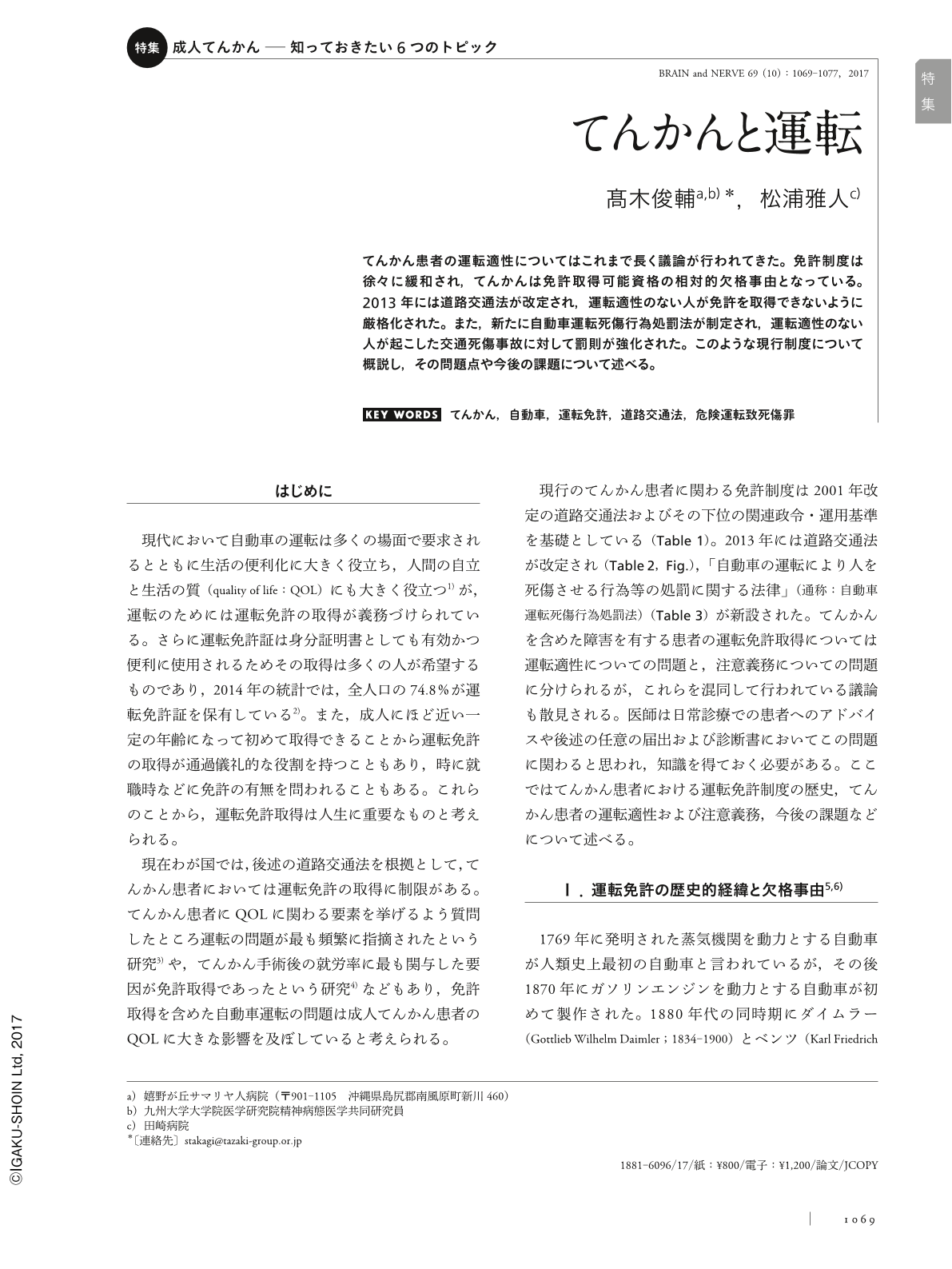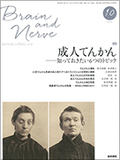Japanese
English
- 有料閲覧
- Abstract 文献概要
- 1ページ目 Look Inside
- 参考文献 Reference
てんかん患者の運転適性についてはこれまで長く議論が行われてきた。免許制度は徐々に緩和され,てんかんは免許取得可能資格の相対的欠格事由となっている。2013年には道路交通法が改定され,運転適性のない人が免許を取得できないように厳格化された。また,新たに自動車運転死傷行為処罰法が制定され,運転適性のない人が起こした交通死傷事故に対して罰則が強化された。このような現行制度について概説し,その問題点や今後の課題について述べる。
Abstract
In Japan, the Road Traffic Act was amended in 2013, and the revision was enacted in 2014. This revision includes new rules such as the requirement that a driver declare medical conditions on licensing, with a penalty for false statements. There is also a new voluntary notification system that enables doctors to report unlawful drivers. At the same time, the new Criminal Law Act was enacted. This act provides a penalty for causing death or injury to other persons by driving under the influence of specific drugs or diseases, including epilepsy. There is a prison term of up to 15 years for this violation. These new laws are the result of several tragic motor vehicle accidents caused by patients with epilepsy who were unfit to drive, and severe punishments are involved. Japan still requires a longer seizure-free period for licensing of patients with epilepsy (2 or 5 years), as opposed to the shorter periods required by other developed countries (US, 3 to 12 months; EU, 12 months). It is debatable whether harsh punishments are more effective in reducing accidents. Further reevaluation and discussion are needed on this issue because a restrictive policy for handicapped persons should be based on scientific evidence and should not be biased by prejudice and discrimination.

Copyright © 2017, Igaku-Shoin Ltd. All rights reserved.


